Killing It At Work
Safety & Security In The Workplace
By Juniper Buley
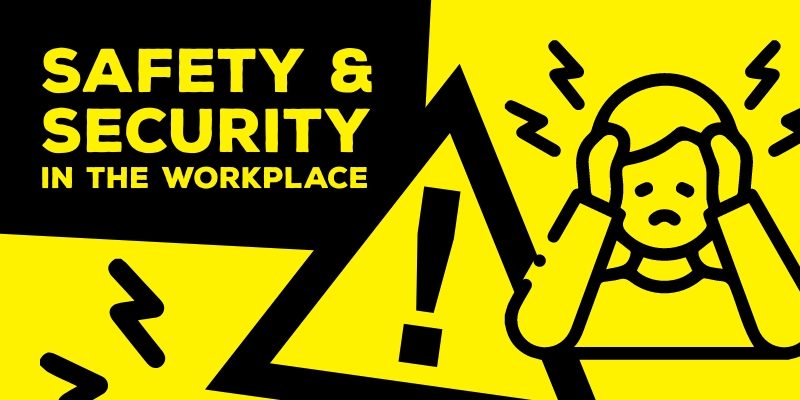
When we set out last year to ask you about what you thought about #quietquitting, the responses were incredible. Over 2,000 of you responded with your thoughts on employment, the working world, and all things related to this social media trend. One of the issues which rose prominently out of the responses indicated that there was a disconnect between workplace training and regulations, and what actually went on within your workplace. Some young people noted their hours weren’t being kept the way they should be. Others said that they saw some shady business going down, but didn’t know who to speak to. Still more responses said they did tell someone, but that the report was ignored – or worse, went straight to the person they were reporting against. So, what can you do in those situations?
It can be a really difficult topic to breach in the first place. Speaking up about issues that arise in the workplace is an absolutely essential and important task that will make everyone safer in the long run (including you!), but it can also lead to some interpersonal conflict which many people might want to avoid. If you’re ever concerned about making a complaint about something you see or hear, try making the report anonymously. Some workplaces provide an anonymous tip-line or an external service which can report on issues without attaching names. Just make sure you’ve got some evidence for your claims so that the report will still be taken seriously.
All quotes in this blog are real quotes taken from real responses to our 2022 #QuietQuitting Survey.
Incidents At Work
Research shows that new employees are the most likely to be involved in workplace accidents or errors, mostly because they’re new to the place and their confidence and knowledge isn’t at the same level as other long-serving employees. To keep yourself safe, make sure you take up all the training that your company gives you, even the voluntary or non-essential stuff, and pay attention – don’t just press the skip button until you get to the end of the video! We know, they’re super boring, but some of the things in there might come in useful sooner than you think.
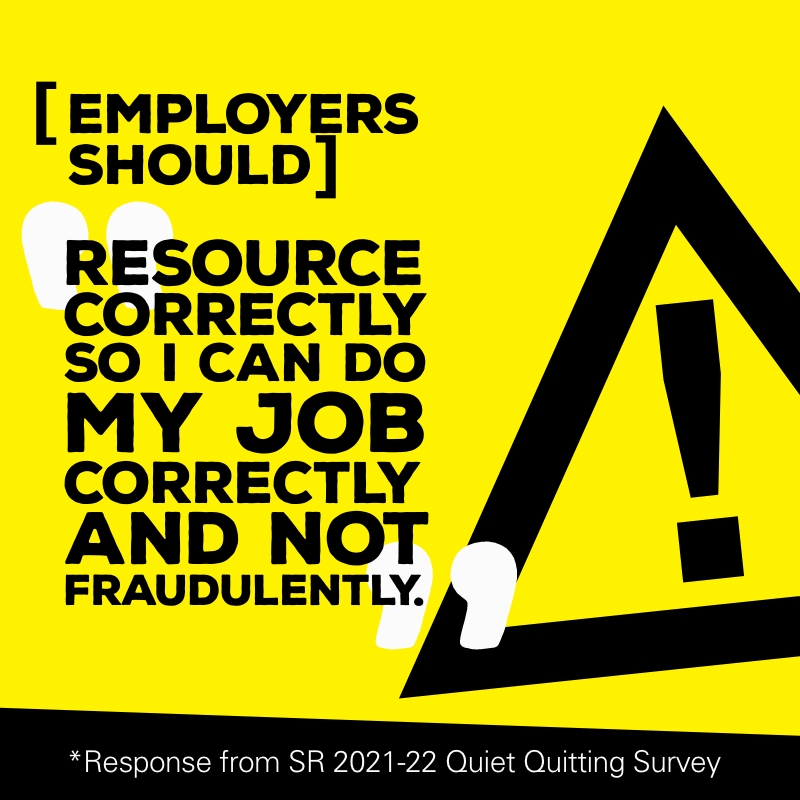
If you’re not being given the resources you need to be able to do your job effectively and correctly, that can not only affect you but the entire business at large. This could include being given enough time to complete tasks perfectly, being given quality PPE (personal protective equipment) like gloves, masks, or uniforms, having access to the programs you need for your role, or even just having enough people rostered on at one time to cover all the necessary jobs. If you feel you’re not receiving what you need, speak up and mention it to a supervisor or a boss. If you get any pushback, ask about how the company decides resourcing so you can understand their thought process.
Just be clear about what you can and can’t achieve and ask for help – most of the time, you’ll receive it if you mention you’re struggling, as often workplaces assume everything is fine if everything is getting done.
As an employee, you also have the right to request reasonable adjustments in the workplace that can help you perform your job well. For instance, if you have vision impairment, you can request larger screens, a bigger zoom, a magnifying glass to read barcodes, or anything else that is reasonable for an employer to be able to give you. Or if you have an issue which disproportionately affects you in the morning, you can request to only be scheduled on afternoon or night shifts.
If you have mental or physical health concerns that are making it difficult for you to perform your work, have a chat with your GP about what accomodations could be reasonable for you to request and then bring those requests to your employer. They're required by law to provide them if they're deemed reasonable. You can also let your boss know that they can receive funding to cover the costs of these adjustments. Find out more about that here.
What do you have a right to?
Every employee has a set of responsibilities set out in their contract and job description which tells them what they’ve got to achieve for the business that hired them. But they also get a series of rights too, things they’re entitled to, which can’t be changed or not given to them by their employers. These rights are the things that keep employees safe and secure in their roles, ensures they’re being treated fairly and equitably, and makes sure they can’t be taken advantage of.
It’s different depending on your state, your level of working (whether you’re casual, full-time or part-time, or contracted) as well as what kind of work you’re doing (this dictates your ‘award’). There are over 100 different industry awards and they all guarantee different rights, wages, and responsibilities. Find your award on the Fair Work website and check what you’re entitled to.
Fair Work: Award Rates, Rights, & Protections
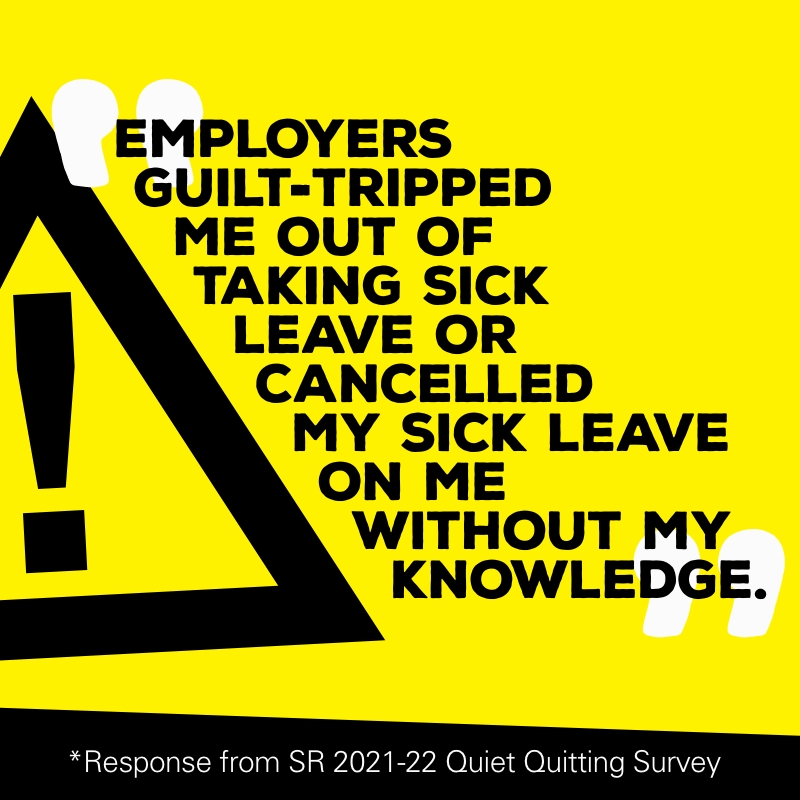
Who can you talk to within your business?
There’s an order of operations when it comes to making a complaint or raising a concern about something related to your workplace. Your first port of call is your direct supervisor. Have a chat with them and bring your concerns up in a professional but firm manner. They’re being paid to be able to handle these issues as they arise, so this should be where your worries end. Though this isn't always the case...
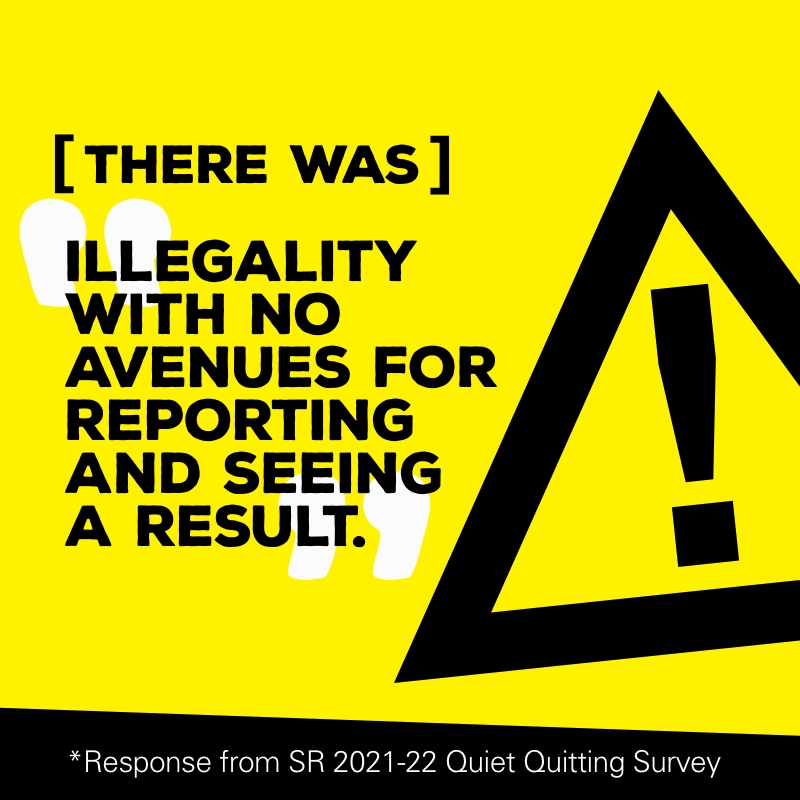
Sometimes it can be more complicated. If your issue lies with your direct supervisor, whether it’s something they’re doing or the way they’re treating you or others, you may not want to bring your issue up to them. In this case, it’s absolutely a good idea to go above their head to whoever they answer to: a higher manager, someone further up the chain of command, or someone in the same role but sideways in the hierarchy. If you don’t know who this might be, ask! There is likely a flowchart of the company’s hierarchy somewhere, with arrows for who reports to who. Don't go too far up before exhausting all other options.
You may also be able to make use of a reporting feature built into your workplace. If you’ve been provided with an anonymous tipline or a number for HR (Human Resources, sometimes called People & Culture) use it! This can be a great way to raise concerns without needing to worry about confrontation or being seen as a snitch.
If you don’t see results, or you think your report hasn’t actually made the changes you requested, then you should go up the ladder again. Make sure you’ve given enough time for the company to make those decisions and get moving, however: remember that corporate structures can be slow and resistant to change, and sometimes have to go through multiple stages of approvals before anything gets done. Keep asking about the status of your changes, however, and keep on them!
Who can you talk to when you've run out of options?
Once you’ve exhausted all your options, you may come to a point where there’s nobody else within your organisation to talk to. We hope it never comes to that, of course! For issues regarding something legal or illegal happening, you must get the advice of someone in the legal profession. Any online advice or recommendations are only speculation at that point: the only people who can properly advise you on issues involving the law is someone who practices law.
For concerns relating to pay, hours, or breaches of the National Employment Standards, you can contact Fair Work, an impartial Federal Government program designed to help both employers and employees resolve issues and operate in a fair and legal way. If they can’t help, they might be able to direct you to someone who can.
For issues regarding food safety specifically, if you work in the food service or hospitality industries, you can reach your state authority on food safety. In NSW, that’s the Food Authority. You can find a list of all the different state’s food authorities here.
For issues regarding interpersonal discrimination, you can head to The National Human Rights Commission, dedicated to protecting people from discrimination based on a huge range of protected characteristics, like age, sex, gender, race and disability, among others.
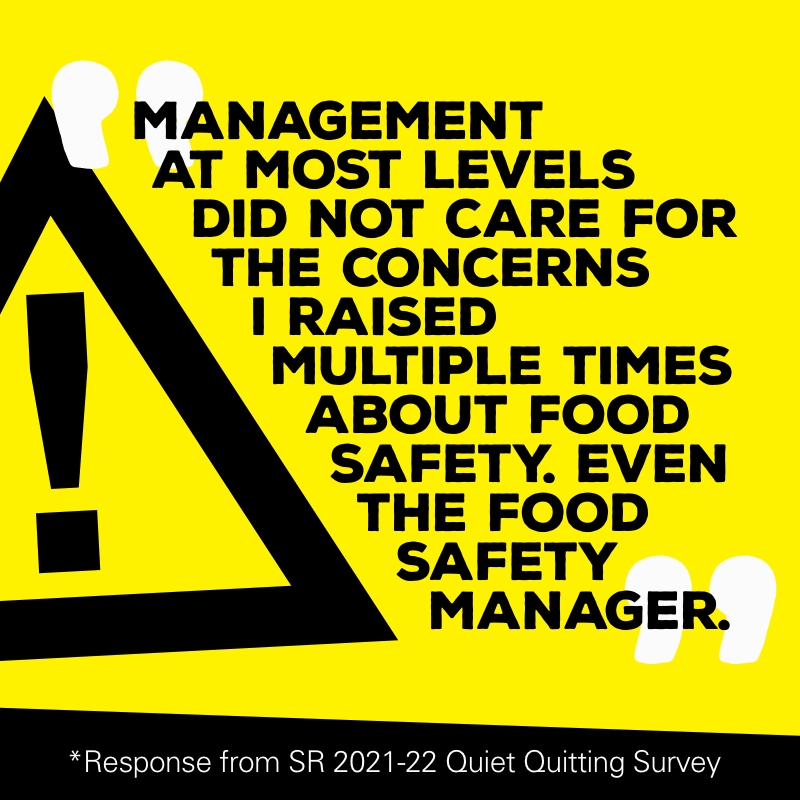
You deserve to be able to safely make reports
